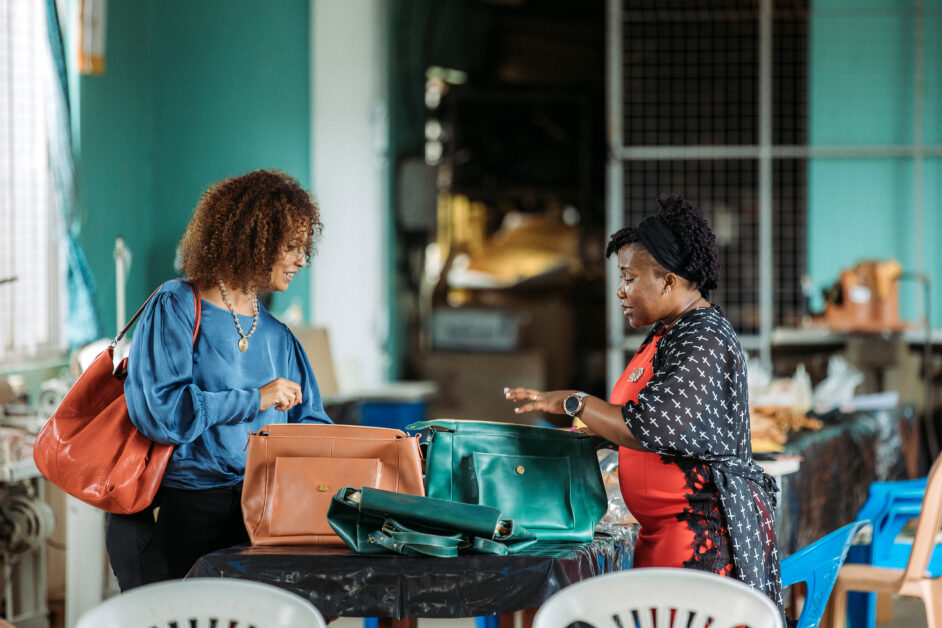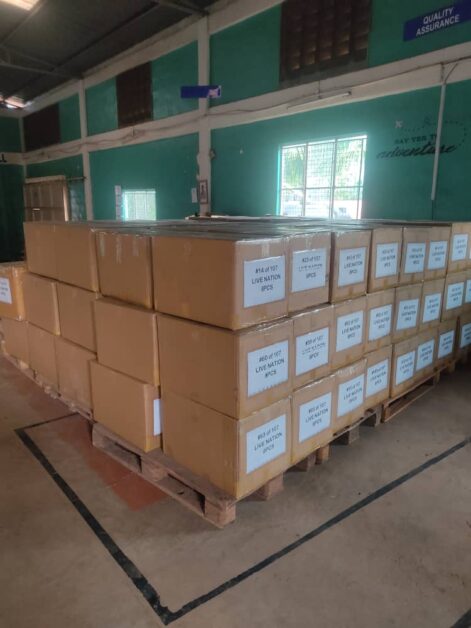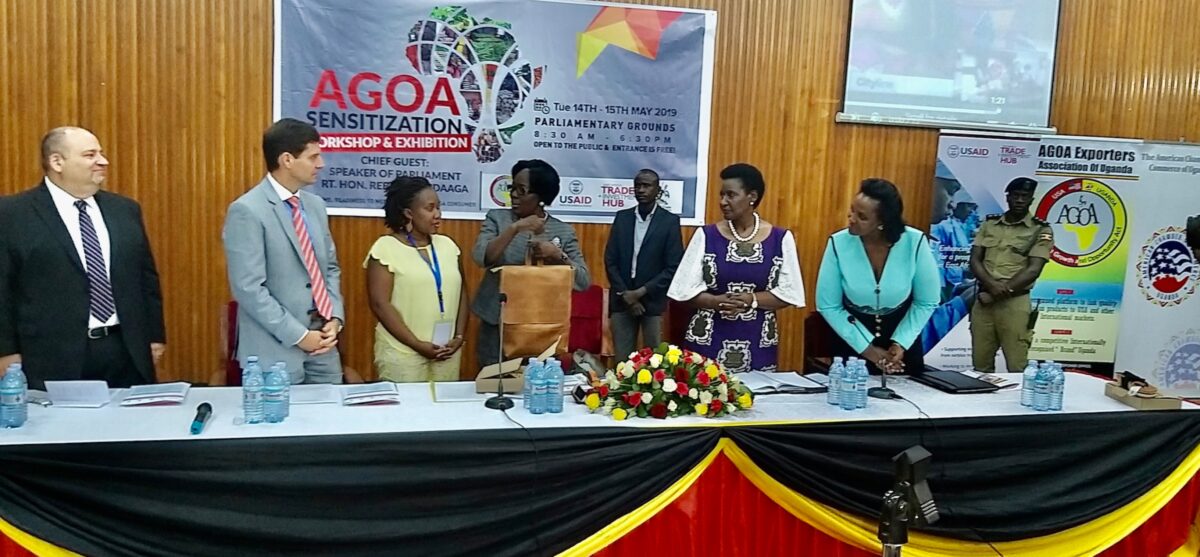U.S. – Uganda bilateral relations took a nosedive at the end of October when U.S. President Joe Biden issued a statement that seeks to terminate Uganda’s membership under the Africa Growth and Opportunity Act (AGOA)with another three countries effective January 1, 2024.
Biden wrote that he took the step after determining that the Central African Republic, Gabon, Niger, and Uganda did not meet the eligibility requirements of section 104 of the AGOA.
In a specific reference to the Uganda government, Biden noted that East Africa’s third-largest economy had engaged in gross violations of internationally recognised human rights.
President Museveni hit back at Biden on November 5.
Like other global leaders, Museveni has adopted to address contentious national and diplomatic matters on Elon Musk’s X platform.
In a diatribe, Museveni stressed that he was not over-concerned by the recent actions by the American government in discouraging their companies from investing in Uganda and removing Uganda from the AGOA list.
“Some of these actors in the Western World overestimate themselves and underestimate the freedom fighters of Africa,” Museveni wrote, indicating that foreign actors erroneously thought that African countries could not move forward without their support.
The simmering tensions between Uganda and the US continue after Biden’s statement came on the heels of a US Embassy Business Advisory in Uganda issued on October 23.
The Advisory warned US businesses, organisations, and individuals to be aware of potential financial and reputational risks resulting from endemic corruption, described in more detail in the 2023 Investment Climate Statement.
It indicates that Uganda’s enactment of the Anti-Homosexuality Act (AHA) on May 29, 2023, increased restrictions on human rights.
This includes restrictions on freedom of expression, and peaceful assembly, and exacerbates issues regarding the respect for leases and employment contracts.
On enactment of the AHA Act in particular, the US Embassy states the Act expands the risks and creates additional opportunities for interference with business operations mandating the reporting of individuals suspected of homosexual behaviour.
This therefore poses heightened risks for prospective businesses and investors associated with interference in and intimidation of the judiciary, use of influence in the courts to resolve political disputes, and co-opted security forces.
It is apparent as Museveni remains defiant towards Biden’s statements, his Kenyan counterpart, William Ruto is seizing investment opportunities from the Americans propelled by Kenya’s US ambassador, Meg Whitman.
Ms Whitman made an impassioned speech in June this year while in the US rallying American investors to partake in the investment opportunities in areas of tech, energy, and finance in Kenya, East Africa’s most wealthy nation.
This month, Ruto and Whitman visited the US to promote technology partnerships between the USA’s Silicon Valley and Kenya’s Silicon Savannah.
What America brings to the table
Some analysts argue that Uganda cannot just wish away America given its strategic importance as a global superpower and development partner.
Data from the American Chamber of Commerce in Uganda, a private outfit that promotes American business interests show the relationship between the two countries stretches back to the day Independent Uganda was born.
For the uninitiated, a new era was jump-started when US President John F. Kennedy wrote a congratulatory message to Prime Minister Apollo Milton Obote upon Uganda’s attainment of self-rule on 9th October 1962.

On the same day, the American consulate general in Kampala was upgraded to an embassy status with Olcott H. Demming as interim Charge D’ Affaires. Since then, America has been a close partner, supporting almost every sector in Uganda’s development.
Furthermore, American companies have been game changers, bringing major foreign direct investments, creating jobs and improving the welfare of Ugandan locals. These companies, some of which are members of the American Chamber of Commerce include; Coca-Cola, Citibank, Ernst & Young, Sheraton Hotels (a member of Marriott International) and American Tower Corporation, among others.
In terms of goods and services, some of Uganda’s imports from the US have included much-needed agricultural inputs, aircraft, electrical machinery and medical instruments.
Exports from Uganda include; coffee, spices, art and antiques, precious metal and stone.
Therefore, the American Chamber of Commerce indicates that despite the competition from China and other big economies, the US will continue to be a major player in Uganda’s socio-economic advancement due to some major factors.
Such factors include trade protocols where the US signed trade agreements with the East African Community and the Common Market for East and Central Africa where Uganda belongs.
Data from the Office of the U.S. Trade Representative valued Uganda’s exports to the USA in 2022 at USD174m (UGX 658b) across many sectors including coffee, vanilla, cocoa, casein, tea, speciality foods, and crafts among others.
On the other hand, U.S. exports to Uganda in 2022 were USD167 million (UGX 631bn).
The U.S. trade balance with Uganda shifted from a goods trade surplus of USD75m (UGX 283b) in 2021 to a goods trade deficit of USD7 m (UGX 26 billion) in 2022.
U.S. foreign direct investment (FDI) stock in Uganda was valued at USD104 million (UGX 393 billion) in 2022, a 13 per cent increase from 2021.
The United States through its 13 government agencies that comprise the U.S. Mission in Uganda invests almost USD1 billion (UGX 3.7 trillion) annually in Ugandan communities.
This is largely through more than 100 implementing partners and civil society organisations, according to the U.S. Mission in Uganda’s 2022 Report to the Ugandan People.

Currently, much of the U.S. government’s foreign assistance in Uganda focuses on health, governance and activities to improve food security; develop and implement policies to improve marketing and trade; and create an enabling environment for the private sector to invest.
A larger part of US assistance to Uganda is channelled through the United States Agency for International Development (USAID).
It is for such reasons that there have been pleas from the Uganda business community to ease tensions through the media and other back-door diplomatic channels.
Stephen Asiimwe, the Private Sector Foundation Uganda chairman on November 7 wrote that Uganda has for long been a close partner with the USA in global security in the “Horn and East/Central Africa and combatting terror.
This has been in particular through its contribution to the African Union Mission in Somalia and peacekeeping in South Sudan, the Central African Republic, Democratic Republic of Congo among others.
Asiimwe also posits that Uganda is also a major tourist destination for US citizens with pre-Covid-19 USA arrivals averaging at 50,000 between 2005 to 2016 and 61,775 tourists in 2017.
“We wish to emphasise that the US business advisory is misguided and does not represent the facts on Uganda’s business environment,” Mr Asiimwe noted.
Can Uganda survive without American investments?
Economic observers picking President Museveni’s thoughts on Biden’s statement assert that, perhaps, Uganda has more trade and investment options on the table with other countries compared to the USA.
John Walugembe, the Federation of Small and Medium Enterprises (FSME), Executive Director, in his assessment, says, there’s limited trade between Uganda and the US even after the introduction of AGOA.
Walugembe identifies key barriers such as the costly long distance between the two countries; and a largely complex US market system for Ugandan traders who lack the understanding of tastes and preferences of Americans.
Such challenges have made it difficult for Ugandans to export to the USA, and prefer other markets in East African markets, Europe, and the Middle East.
For instance, Uganda exported merchandise worth USD670,000 (UGX 2.5 billion) during August 2023, according to a Ministry of Finance September economic performance report. Worthy to note is that the biggest share of Uganda’s exports during August 2023 went to the EAC partner states accounting for 34.7 % of the exports. This was followed by the Middle East with 22.6%, Asia with 20.3% and the European Union with 12.5% of the total exports.
On a country-specific level, the United Arab Emirates remained Uganda’s largest destination of exports during the month.
Within the same month, Uganda also imported goods worth USD1 billion (UGX 3.7 trillion) with major drivers being mineral products (gold), wood, petroleum, vehicles and machinery.
Asia remained Uganda’s biggest source of imports in August 2023, accounting for 33.3%of all imports followed by the EAC, Middle East and the Rest of Africa accounting for 27.7%, 19.4% and 10.8% respectively.
At a country-specific level, Tanzania and China were Uganda’s largest sources of imports.
Walugembe also notes that there are concerns Uganda is tilting to the East and dealing more with China, Russia and the Middle East.
CEO East Africa Magazine’s independent analysis of America’s foreign direct investment vis- -vis other foreign countries in Uganda shows the global superpower faces fierce competition.
A 2022 State of Investment Memo from the Uganda Investment Authority indicates that China remains the leading source of foreign direct investment for the Pearl of Africa.
From 1991 to December 2022, foreign investment in Uganda from China totalled USD3.7b (UGX 14 trillion), closely followed by India at USD2.4b (UGX 9 trillion), Kenya at USD1.9b (UGX 7.1 trillion), the United Kingdom at USD1.8b (UGX 6.8 trillion), Cayman Islands at USD1.2b (UGX 4.5 trillion), Mauritius at USD806m (UGX 3 trillion), Singapore at USD697m (UGX 2.6 trillion) and the USA at USD496m (UGX 1.8 trillion).

Most of these investments are in agriculture, forestry, fishing, mining, quarrying, energy, construction, transport, and financial services.
In terms of the actual value of jobs created, and taxes contributed by foreign companies, the top five tax-paying foreign manufacturing establishments are from the United Kingdom (UGX 991b), Kenya (UGX 893 billion); India (UGX 266 billion), USA (UGX 187 billion), and Bermuda (UGX 135 billion).
The top tax-paying foreign manufacturing establishments are not necessarily the top employers.
Bermuda tops the employer’s list with 10,0095 jobs, followed by 7,983 actual jobs, Kenya with 6,215 actual jobs and Lebanon which isn’t among the top 5 tax-paying entities employs 7,794 actual jobs.
The top 5 employers major in sugar production, food processing, beverages, basic metals and metal products, wood products and textiles.
Factors at play
Some important insights emerging from the Uganda Investment Authority show that first; Uganda has a double taxation treaty with three of the top investment sources namely; India, the UK, and Mauritius.
Investment from the Cayman Islands is significant too as a tax haven, despite Uganda not having a double taxation agreement with the Cayman Islands.
At the Sub-Saharan level, other historical factors come into play. According to a 2018 report titled, ‘U.S. Trade and Investment with Sub-Saharan Africa: Recent Development’ from the United States International Trade Commission.
For instance, the report shows [historical] commercial ties have contributed significantly to the European Union’s investments in the region mainly because most countries are former British colonies.
China’s large and long-term investments are attributed to strong Chinese government support, and linkages between China’s trade and investment in the region.
Additionally, the country’s interests in securing natural resources and access to global supply chains in the region have all helped explain the size and growth of Chinese investments in the region.
Meanwhile, state-owned enterprises (SOEs) are prominent in China’s natural resource and energy industries and have predominated in this form of Chinese investment within Sub-Saharan Africa.
China’s massive “One Belt, One Road” infrastructure initiative has included Africa in its purview, and many of the firms involved in its associated infrastructure development are state-owned.
A clear observation in Uganda is China’s large involvement in road construction, power dams and the East African Crude Oil Pipeline.
Expert’s view
Julius Mukunda, an economist and the executive director at Civil Society Budget Advocacy Group (CSBAG) argues America’s influence on the global economy cannot be underestimated being the world’s largest national economy and leading global trader.
This is also considering that the United States has a major influence on the World Trade Organisation operations.
“The United States is not about trading with Uganda but trading globally, if the USA decides to say we’re not trading with you, there are several countries that are likely to slow down in making investment decisions,” Mukunda says.

Mukunda is also of the view that as a country, we need more foreign investments considering that every shilling counts.
He argues that “anything that hinders or curtails Uganda’s ability to get an extra dollar is definitely detrimental to our efforts in terms production, job creation and economic growth, but majorly managing the monetary system in this country.”
America’s coveted position as a global superpower with major headquarters such as the World Bank and the IMF also gives it an upper hand.
Therefore, the USA still has a big influence on Uganda’s economic affairs for a country that largely survives on external financing.
US – Uganda trade ties: AGOA’s tricky question?
With only a few weeks to end 2023, Uganda’s business community is racing against time to renegotiate Uganda’s suspension from the AGOA deal.
Central to these discussions is Ms Susan Muhwezi, whose leadership at AGOA in Uganda has been contested in some public quarters over what some consider ‘Uganda’s dismal performance compared to other African countries’.
“We engaged with the Assistant US Trade Representative at the AGOA forum in South Africa. We will continue to engage,” Ms Muhwezi told CEO magazine.
The 20th AGOA Forum 2023 took place in Johannesburg, South Africa between 2 – 4 November.
On November 5, Ms Meg Hilbert, President of the Board of the American Chamber of Commerce in Uganda penned a statement indicating African countries would engage US government officials, including Don Graves, Deputy Secretary of the US Department of Commerce to consider extending the programs for another 10 years.
Stephen Asiimwe, the Private Sector Foundation Uganda chief executive, has also echoed similar concerns indicating that Uganda’s suspension from AGOA presented losses to both Uganda’s private sector players.
Meanwhile, President Museveni’s special advisor and son-in-law, Odrek Rwabogo, in a statement argued that while Ugandan trade with the U.S through AGOA was insubstantial; it remained an important pillar for Uganda’s economic strategy going forward.
“Ugandan farmers and small business owners will suffer,” Rwabogo quipped.
Making sense of AGOA
AGOA was established by the US Congress in 2000 and reauthorized in 2015 by former US President Barack Obama.
The program provides tariff-free access to the U.S. market for exports of most products from most countries in sub-Saharan Africa.
Currently, Uganda is among the 36 beneficiary countries that are eligible to export over 6000 non-arms goods.
Eligibility depends on favourable annual reviews of a country’s trade and investment policy, governance, worker rights, human rights, and other conditions.
Last September, U.S. Senator John Kennedy introduced the AGOA Extension Act of 2023, a bill that sought to extend AGOA through to September 2045.
Central to Senator Kennedy’s bill is a diplomatic war that seeks to counter China’s growing influence in the region for the next two decades, but also facilitate trade across sub-Saharan Africa.
Dismal performance
Arise Kollections is one of Uganda’s success stories of AGOA having started in 2010 after its proprietor, Ms Agnes Netunze Kitumba met Ms Muhwezi in the same year. The company is a social enterprise based in Butto, Bweyogerere on the outskirts of Kampala city.
Arise manufactures and distributes high-end leather and textile fashion accessories such as handbags, footwear, jewellery, and hand-woven items to the US market duty-free. However, Ms Kitumba admits that her success under AGOA was born out of a merger that involved two American companies; Sseko Designs LLC (USA) with Noonday Collection.
This merger enabled it to become a majority Ugandan female-owned independent company.
Sseko Designs LLC (USA) was originally founded in 2009 to create employment for young adults to bridge the 9-month gap between high school and enrolling into University in Uganda.
Ms Kitumba says over the last 13 years, the company has made significant penetration in the US market raking in USD100 million (UGX 378 billion) in export sales.
However, it is worth noting that Uganda has not maximally utilised the AGOA opportunity due to low capacity, according to data from the American Chamber of Commerce in Uganda.
Originally, the Ugandan government had identified garments as the main export to utilize the (AGOA) treaty, however, the project hit a dead end due to allegations of mismanagement.
A detailed Uganda AGOA guide published in 2019 shows Uganda has recorded significant fluctuations in AGOA exports peaking in 2004 with a value of approximately USD5m (UGX 18b).
A period of export shrinkage followed with AGOA exports hitting a low of less than USD1m (UGX 3.7b) in 2009.
Exports have not fully recovered, but are expanding.
For instance, in 2018, exports stood at USD 4.48 million (UGX 16 billion), and as of the end of September 2023, exports under AGOA stood at USD 9 million (UGX 34 billion).

Prof. Phillip Kasaija Apuuli at the Department of Political Science and Public Administration at Makerere University argues that the revenues from AGOA are miniscule, and therefore in the context of Uganda’s foreign trade, the USA market remains very small.
Another interesting finding is a Parliament report of the committee on tourism, trade and Industry on the Ministerial policy statements and budget estimates for the FY 2023/24.
The report shows that whereas the US government offered Uganda 5000 items, Uganda can export only 31 items.
Uganda’s AGOA country office has also on the other hand suffered budget cuts further crippling its activities.
For instance, the report observes that in the previous financial year, the approved budget for the AGOA office was a trifle of UGX 550 million. However, the budget has since been reduced to UGX 100 million, and the office remains understaffed with a staff of only three people.
Worthy to note in the report is that AGOA remains a great opportunity for the Ugandan economy and its funding should be prioritised.
Why the failure?
Several factors are attributed to AGOA’s failure to take off in Uganda, and some other countries.
The failure of some beneficiary countries to make full use of these opportunities remains inhibited by structural disadvantages, according to a review done by the United Nations Conference on Trade and Development.
Chief among these disadvantages is continued reliance on exports of raw materials, poverty and lower levels of industrial development.
This in part has inhibited the capacity of countries to produce and export more advanced, processed products that are price-competitive, meet global standards, and fulfil the AGOA rules of origin.
In addition to gaps in resources, credit, and human capital, other factors include; reliable and affordable energy, high transport and trade-facilitation costs, and difficulties in complying with voluntary standards and quality controls.
In an honest view of AGOA, Ms Kitumba, the Arise Collections proprietor, asks, “Before we cry out to the US to rethink their decision, what are we going to do differently to benefit from it like most countries have done?”
She notes that for 10 years of exporting under AGOA, no support was rendered to her company despite the many requests to the government.
“This support doesn’t have to be only monetary,” she says, “it can be in many forms- AGOA sensitisation, tax incentives for exports, trade reps in the USA to share what’s selling and not, among others.”
Tri-Star Apparels losses
Uganda made her first attempts to cash on the lucrative AGOA market in 2002 with the formation of the Apparels Tri-Star Uganda Limited in Bugolobi, a Kampala suburb- a deal that ended premium losses.
The company was formed to create the capacity to take advantage of the AGOA Act.
Tri-star was expected to be the seed factory in Uganda that would precipitate a series of factories taking advantage of AGOA to export to the USA.
The textile firm’s export garments to the US market reached a tune of USD75,000 (UGX 283m) per week, with total exports reaching USD1.2m (UGX 4.5b) as of September 2003.
The government then injected USD10 million (UGX 37 billion)as a loan to the company at 7 per cent interest through the Uganda Development Bank, according to a 2018 government Auditor General’s report authored by John Muwanga.
In March 2004, the Bank of Uganda also guaranteed another loan of USD4.2 million (UGX 16 billion) from dfcu Bank to the Company.
However, a Parliament probe in 2004 considered Tri-star, “a high-risk investment due to lack of proper management of the loans acquired and lack of security for the funds injected in.”
To make it worse, the company lacked a board of management, according to a report of the Parliament Committee on Finance, Planning and Economic Development published in October 2004.
The probe into the workings of the company was sparked off by its employees known as the “AGOA girls” who went on strike and camped at Parliament.
The cause of the strike was allegedly poor working conditions, which among others, included poor remuneration and long working hours.
Another key observation made in the Parliament report is that the company also did not implement backward linkages to local cotton farmers, but instead was engaged in the importation of fabrics for tailoring.
However, Muwanga observes that it is very difficult for Uganda to be competitive in the low-cost textile industry.
Tri-star, which was run by two Srilankan nationals, Mr Kumar and Kananathan, had by 2006 closed shop in Uganda.
Making AGOA work for Africa
On a visit to South Africa in early November, Ms Muhwezi joined other African officials in rallying for the renewal of AGOA.
In a read-out document for African Ministers at the South Africa AGOA forum shared by Ms Muhwezi to the CEO Magazine.
African governments argue that for countries whose benefits have been withdrawn from AGOA; the US [should] not use non-trade considerations in determining AGOA eligibility.
In this regard, African ministers called for the US to simplify the rules of origin that hamper market access, address Sanitary and Phytosanitary (SPS) measures that act as a barrier, especially for agriculture products and support capacity building to enable member countries to access the US market.
According to the World Trade Organisation, sanitary and phytosanitary measures can take many forms, such as requiring products to come from a disease-free area, inspection of products, specific treatment or processing of products, setting of allowable maximum levels of pesticide residues or permitted use of only certain additives in food.
African trade officials are also advocating for the US to revisit the introduction of rules and standards that make it difficult to export.
For instance, the requirement of organic certification for beef, Section 232 on aluminium and steel makes products uncompetitive in the US market despite being exported in other markets.
On March 8, 2018, President Trump exercised his authority under Section 232 of the Trade Expansion Act of 1962 to impose a 25 per cent tariff on steel imports, with exemptions for Canada and Mexico, to protect US national security.
African governments have also called on the US to ensure that AGOA has a development dimension including infrastructure, industrial development as well and technology transfer.
This should explore the opportunities to upscale investment, infrastructure and digital development including innovative financing schemes to promote Regional and Continental Value Chains.
African governments also want the establishment of a public-private forum to facilitate dialogue with the private sector and promote business-to-business forums between the US and African companies.
